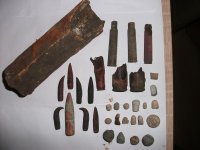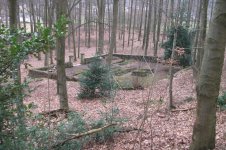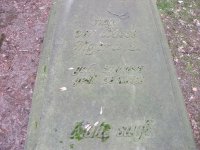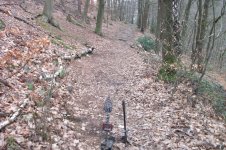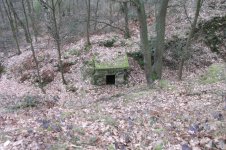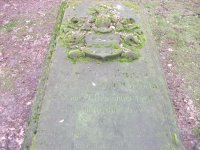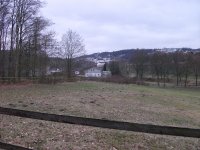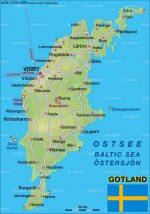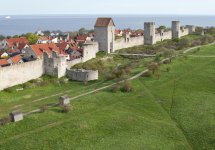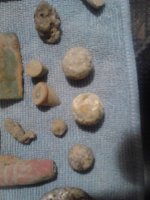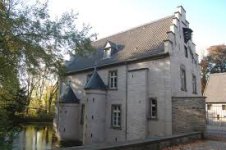You are using an out of date browser. It may not display this or other websites correctly.
You should upgrade or use an alternative browser.
You should upgrade or use an alternative browser.
ammunition
- Thread starter Fear_me_Punk_11
- Start date
sweetinsanity
Full Member
nice, a little bit of everything!
Leave-No-Coins-Behind
Forum Supporter
Interesting stuff... HH
bergie
Forum Supporter
Nice assortment of finds there.
Fear_me_Punk_11
Junior Member
family grave in the woods
this is my close by hunting ground.
here in the woods i found a lot of those rifle-bullets.
there is a small family grave in the woods.
a major who died 1918 in the WW1 and a leutnant who died 1900 are members of family.
a little bunker not really solid.
look at those picture. hope you like them.
this is my close by hunting ground.
here in the woods i found a lot of those rifle-bullets.
there is a small family grave in the woods.
a major who died 1918 in the WW1 and a leutnant who died 1900 are members of family.
a little bunker not really solid.
look at those picture. hope you like them.
Attachments
Fear_me_Punk_11
Junior Member
Ron 71
Forum Supporter
Great bunch of finds and a very beautiful place Congrats!
Germany is at the top of my travel bucket list, hope I make it there one day.
Germany is at the top of my travel bucket list, hope I make it there one day.
Fear_me_Punk_11
Junior Member
Hi Ron71,
my dream is Gotland.
its not far away from west of germany where i live.
i already checked it out. i have to go by train to Lübeck.from there with a train to the coastline and with a ship to gotland.
180 euro about 190 us-dollar a one way trip.
i wanne go for a 2 week detecting vacation over there.
hunting is difficult without no information and permission.
to hunt on a Ground monument is there illegal,same as here in germany.
here a few infos and pictures from the "Holy Grail" in metal detecting.
Gotland is a Swedish island and historical province. The second largest island in the Baltic Sea after Seeland (Denmark) and before Funen (Denmark) and Saaremaa (Estonia) lies northeast of Öland. It has its name from the Germanic tribes of the Goths, who left the island at least partially according to the Gutasaga, in order to erect large empires on the continent, later as the Visigoths and the Visigoths, in the Mediterranean region.
The island was first populated by hunters and collectors. The skeletal finds of Stenkyrka and Lummelunda are about 8000 years old. Thus they are not only the oldest in Gotland, but also belong to the oldest in Sweden. Around 2000 BC hunters were displaced by farmers. A little later the bronze came to the island. The Iron Age began as in the rest of the north around 500 BC The settlements also served as trade places. Archaeologists Feuerstein have been found in several of them, which originates from southern Sweden; Arrow tops of slate came from central Sweden or Norrland and amber from the southern Baltic Sea.
The more than 800 Viking-time finds on the island, including the three Halls of Spillings (only 65 kg of silver with a material value of 600,000 €) recovered in 2000, can be seen in Stockholm.
The fact that Kurian weapons and jewelery came to Gotland are decorated with ornamental needles, fibulae and swords from the 10th century. There were utensils, as they occur in the vicinity of Klaipėda and Kretinga, on the gothic coast. The tomb in Hugleifs demonstrates the presence of cures on the island. The finds indicate trade relations with the Baltic, but only in the 10th and 11th centuries.
my dream is Gotland.
its not far away from west of germany where i live.
i already checked it out. i have to go by train to Lübeck.from there with a train to the coastline and with a ship to gotland.
180 euro about 190 us-dollar a one way trip.
i wanne go for a 2 week detecting vacation over there.
hunting is difficult without no information and permission.
to hunt on a Ground monument is there illegal,same as here in germany.
here a few infos and pictures from the "Holy Grail" in metal detecting.
Gotland is a Swedish island and historical province. The second largest island in the Baltic Sea after Seeland (Denmark) and before Funen (Denmark) and Saaremaa (Estonia) lies northeast of Öland. It has its name from the Germanic tribes of the Goths, who left the island at least partially according to the Gutasaga, in order to erect large empires on the continent, later as the Visigoths and the Visigoths, in the Mediterranean region.
The island was first populated by hunters and collectors. The skeletal finds of Stenkyrka and Lummelunda are about 8000 years old. Thus they are not only the oldest in Gotland, but also belong to the oldest in Sweden. Around 2000 BC hunters were displaced by farmers. A little later the bronze came to the island. The Iron Age began as in the rest of the north around 500 BC The settlements also served as trade places. Archaeologists Feuerstein have been found in several of them, which originates from southern Sweden; Arrow tops of slate came from central Sweden or Norrland and amber from the southern Baltic Sea.
The more than 800 Viking-time finds on the island, including the three Halls of Spillings (only 65 kg of silver with a material value of 600,000 €) recovered in 2000, can be seen in Stockholm.
The fact that Kurian weapons and jewelery came to Gotland are decorated with ornamental needles, fibulae and swords from the 10th century. There were utensils, as they occur in the vicinity of Klaipėda and Kretinga, on the gothic coast. The tomb in Hugleifs demonstrates the presence of cures on the island. The finds indicate trade relations with the Baltic, but only in the 10th and 11th centuries.
Attachments
Fear_me_Punk_11
Junior Member
2 Musketballs and a smaller one.
found them on a plowed field...close to this......
the remains of a moth which had been preserved at Werdringen in the 12th or 13th century had been a predecessor of the later Wasserburg, is unclear because of the archaeological investigations so far missing.
After the conquest of Volmarstein castle in 1324 by the Counts of the Mark, Werdringen became a part of the county Mark. In the Late Middle Ages and in the early modern period the owners changed several times.
found them on a plowed field...close to this......
the remains of a moth which had been preserved at Werdringen in the 12th or 13th century had been a predecessor of the later Wasserburg, is unclear because of the archaeological investigations so far missing.
After the conquest of Volmarstein castle in 1324 by the Counts of the Mark, Werdringen became a part of the county Mark. In the Late Middle Ages and in the early modern period the owners changed several times.
Attachments
Robban98422
Junior Member
Hi Ron71,
my dream is Gotland.
its not far away from west of germany where i live.
i already checked it out. i have to go by train to Lübeck.from there with a train to the coastline and with a ship to gotland.
180 euro about 190 us-dollar a one way trip.
i wanne go for a 2 week detecting vacation over there.
hunting is difficult without no information and permission.
to hunt on a Ground monument is there illegal,same as here in germany.
here a few infos and pictures from the "Holy Grail" in metal detecting.
Gotland is a Swedish island and historical province. The second largest island in the Baltic Sea after Seeland (Denmark) and before Funen (Denmark) and Saaremaa (Estonia) lies northeast of Öland. It has its name from the Germanic tribes of the Goths, who left the island at least partially according to the Gutasaga, in order to erect large empires on the continent, later as the Visigoths and the Visigoths, in the Mediterranean region.
The island was first populated by hunters and collectors. The skeletal finds of Stenkyrka and Lummelunda are about 8000 years old. Thus they are not only the oldest in Gotland, but also belong to the oldest in Sweden. Around 2000 BC hunters were displaced by farmers. A little later the bronze came to the island. The Iron Age began as in the rest of the north around 500 BC The settlements also served as trade places. Archaeologists Feuerstein have been found in several of them, which originates from southern Sweden; Arrow tops of slate came from central Sweden or Norrland and amber from the southern Baltic Sea.
The more than 800 Viking-time finds on the island, including the three Halls of Spillings (only 65 kg of silver with a material value of 600,000 €) recovered in 2000, can be seen in Stockholm.
The fact that Kurian weapons and jewelery came to Gotland are decorated with ornamental needles, fibulae and swords from the 10th century. There were utensils, as they occur in the vicinity of Klaipėda and Kretinga, on the gothic coast. The tomb in Hugleifs demonstrates the presence of cures on the island. The finds indicate trade relations with the Baltic, but only in the 10th and 11th centuries.
Hi there, Before you go, i will have to give you some bad news.
Sweden has very strict metal detecting laws.
You are now allowed to detect on any ground, not even your own, without a permit from the "county government" and those takes minimum 6 months to get.
Oh and you cant get a permit if it is any "ancient" relics noted near, and whole Gotlands is an ancient island, so they simple dont give out permits to any region in Gotland.
you can PM me for more information if you want.
sorry for broken english, did not spellcheck this


